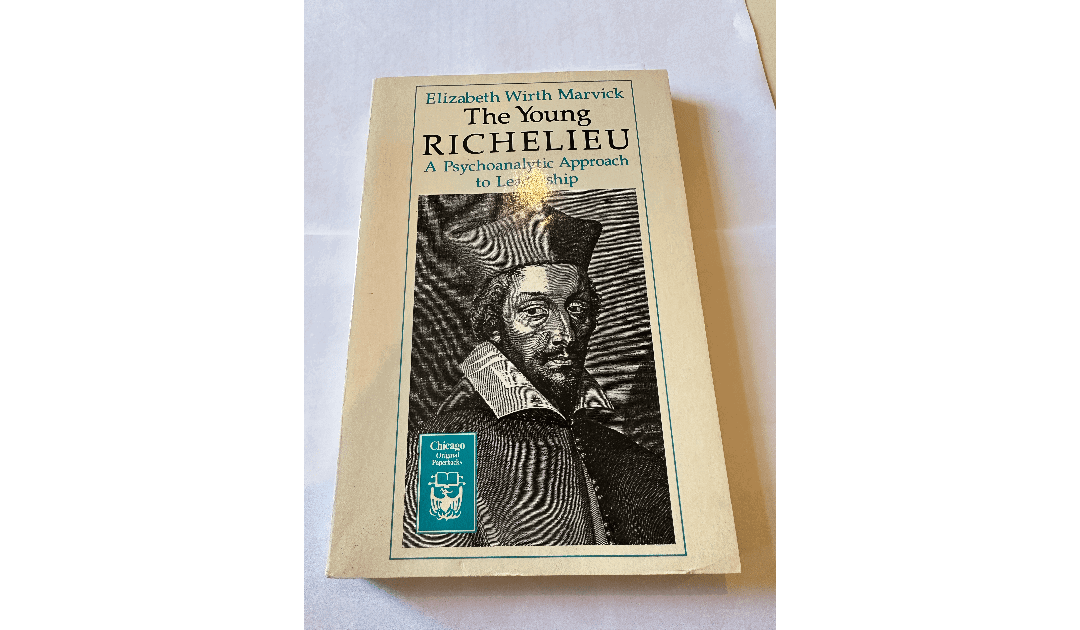I have reached page 169 of 213 of Young Richelieu, by Elizabeth Marvik. You will remember that I read her biography of Louis XIII last year. Her biography of his prime minister is equally useful. So far I have learnt that Richelieu inherited a sharp legal brain from his mother’s family. He had an intense sense of justice and reciprocity. He would be certain to return any favour done for him.
Since his father died when he was very young, and his brothers were older than him, he grew up in a predominantly female household. There was therefore an absence of physical punishment in his childhood. Instead his mother and elder sisters would shame him into desired behaviour. Marvik suggests that his self-control and caution before acting decisively is a result of his infantile efforts at self-control to avoid incontinence.
Since he had not experienced beatings as a child, Richelieu took no pleasure in inflicting pain. He would use violence as a tool of government, but he took no pleasure in it. He was very prone to tearfulness when suppressing anger. Marvik suggests that this is a reaction learnt by an infant trying to recall a mother he has lost sight of.
Richelieu very carefully chose his words. His sentences were always short and effective. Curiously his writing entirely lacked punctuation and accents. He treated theological debate as play, and didn’t have as deep a grasp of the subject as others.
So I am gradually building a picture of the characters of two key actors. The events pressing for my attention are the Estates General of 1614 and the murder of Concino Concini in 1617. I think I’m getting there, but there’s still a long way to go before I type those wonderful words, Chapter One, in book 5 of the Sir Anthony Standen Adventures.

